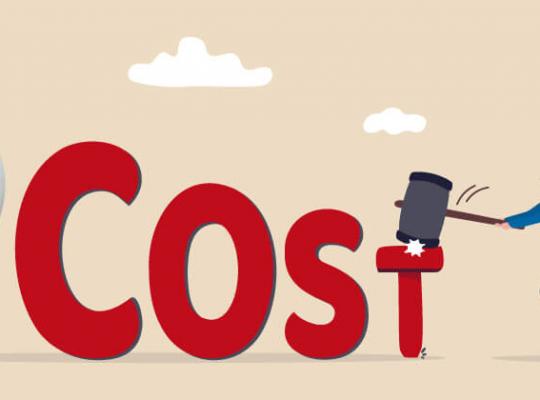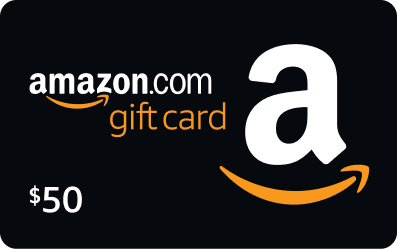The Ultimate Dental Conference Checklist: Your Comprehensive Guide

Dental conferences stand as beacons of professional growth and innovation in the ever-evolving field of dentistry. These gatherings offer a wealth of knowledge, networking opportunities, and the chance to explore cutting-edge advancements. Whether you're a seasoned practitioner, a dental student eager to dive into the world of oral healthcare, or part of a dedicated dental team, attending a dental conference is a pivotal step in staying ahead in your profession.
But the key to maximizing your experience lies in meticulous preparation. The provided comprehensive guide will help you navigate the journey of conference preparation, attendance, and post-conference actions. From selecting the right conference to choosing the ideal attendees from your dental office, we'll cover every aspect to ensure your next dental conference becomes a game-changer for your career.
Types of Dental Conferences
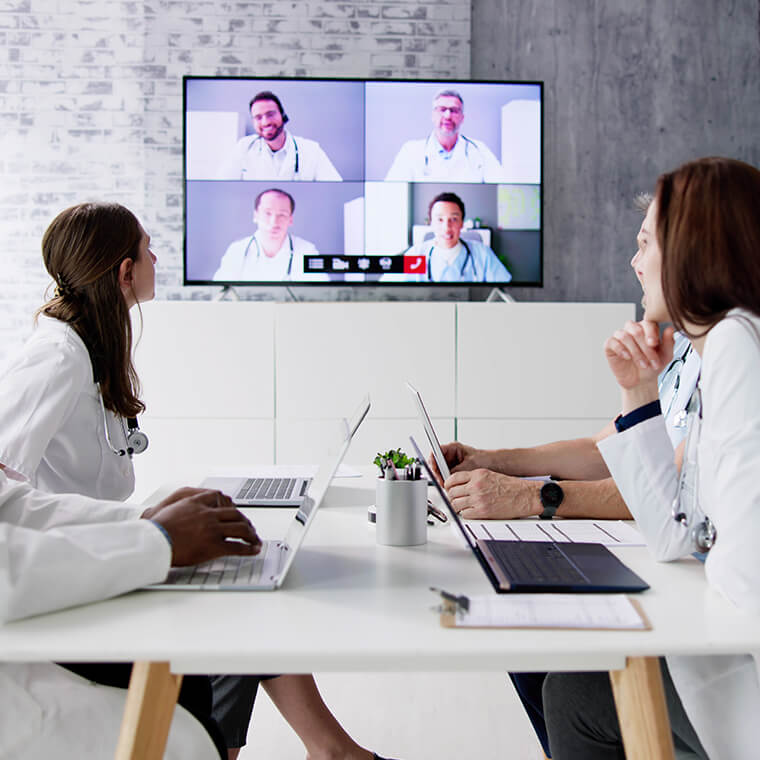
Dental conferences come in various formats and focus areas, catering to the diverse interests and needs of dental professionals and students. Understanding the types of dental conferences available can help you choose the ones that align best with your goals and interests.
1. General Dental Conferences
General dental conferences serve as pivotal gatherings that cater to the broad spectrum of professionals in the dental field. These conferences are instrumental in facilitating the exchange of knowledge, fostering innovation, and promoting continuous learning within the dental community. They offer a diverse range of opportunities for attendees to engage with the latest developments, explore emerging trends, and connect with peers from across the globe.
2. Specialty-Specific Conferences
Specialty-specific conferences play a crucial role in the ongoing education and professional development of dental practitioners. These events offer deep dives into specific areas of dentistry, providing practitioners with opportunities to explore the latest advancements, techniques, and research within their respective fields.
3. Research and Academic Conferences
Research and academic conferences serve as essential platforms for the exchange of knowledge and ideas in the field of dentistry. These conferences bring together professionals, researchers, educators, and administrators to discuss various aspects of the dental profession, fostering collaboration and advancing the field as a whole.
Virtual vs. In-Person Conferences
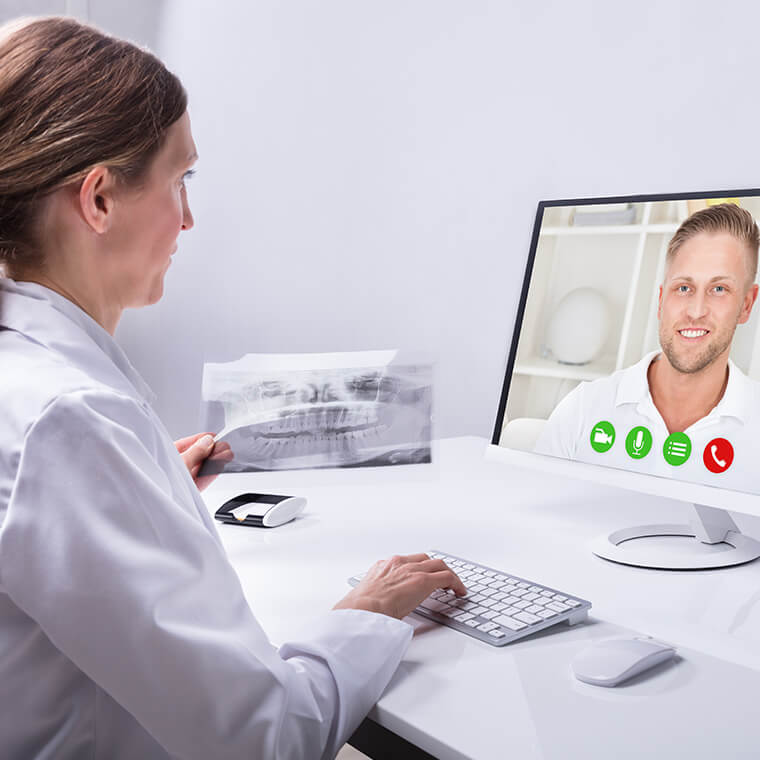
The choice between virtual and in-person dental conferences has become increasingly relevant, especially after the global COVID-19 pandemic. Each format offers unique advantages and considerations:
In-Person Conferences
In-person conferences offer unique advantages, including face-to-face networking, immersive learning, and spontaneous social interactions. However, they come with travel expenses and a significant time commitment, often spanning several days away from work or studies. Prospective attendees must carefully weigh these benefits against logistical considerations when deciding to participate.
Virtual Conferences
Virtual Conferences are accessible and flexible, allowing attendees to join from anywhere with an internet connection, reducing travel costs, and accommodating scheduling conflicts. They offer a global reach, enabling networking with a diverse audience. However, technical challenges and limited interactivity can be minor drawbacks compared to the benefits.
When deciding between virtual and in-person conferences, consider your goals, preferences, and circumstances. In some cases, a hybrid model, combining both formats, may offer the best of both worlds, allowing you to enjoy the benefits of in-person networking while accommodating a virtual component for greater accessibility and flexibility.
Selecting Attendees from Your Dental Office

Choosing the right individuals from your dental office to attend a dental conference is a crucial decision that can impact the success and benefits of your participation. Here are some considerations to help you make informed choices:
1. Identify Objectives and Goals
Before selecting attendees, it's essential to have a clear understanding of the objectives and goals you intend to achieve by participating in the conference. By defining these objectives upfront, you can tailor your conference experience to maximize its impact on your dental practice or educational institution.
How OrthoGrace Dental uncovered hidden inefficiencies and transformed their practice with Adit Think your systems are working just fine? So did they. Ortho Grace Dental wasn’t looking to switch. Until a quick...
Download Case StudyBelow are just a few of many reasons to attend a dental conference:
- Staying Current with Dental Trends: If your primary goal is to keep your practice up-to-date with the latest trends and innovations in dentistry, your focus might be on selecting attendees who are responsible for implementing new technologies or treatment methods. For instance, you might send your head dentist or clinical lead to attend sessions on emerging dental technologies.
- Enhancing Clinical Skills: If your practice is keen on improving clinical skills or learning about advanced treatment techniques, sending your clinical team members, such as dentists, hygienists, and dental assistants, to hands-on workshops or specialized clinical sessions might be the priority. These attendees can learn new procedures and bring back practical skills to the practice.
- Practice Growth and Marketing: If your objective is to expand your patient base or improve your practice's marketing strategies, selecting attendees who specialize in practice management or marketing could be beneficial. They can attend sessions on marketing strategies, patient engagement, or business development.
- Team Building and Motivation: Sometimes, the goal might be to boost team morale, foster teamwork, or motivate your staff. In this case, consider sending a mix of team members to participate in team-building workshops or motivational sessions. This can improve the overall synergy within your dental office.
- Compliance and Regulations: If your practice needs to stay compliant with dental regulations and standards, sending someone responsible for regulatory compliance or quality assurance may be essential. These individuals can attend sessions related to dental law and regulations.
By clearly defining your objectives, you can align your conference attendance strategy with your practice's specific needs. This ensures that the individuals you select to attend the conference are the ones best equipped to bring back valuable insights and knowledge to drive your dental practice or educational institution forward.
2. Consider the Role and Specialization
Different team members within your dental office may benefit from specific conferences based on their roles and areas of specialization:
- Dentists: Dentists often attend general dental conferences to stay updated on industry trends, clinical techniques, and practice management strategies. Consider their areas of interest and how it aligns with the conference focus.
- Hygienists: Dental hygienists may benefit from conferences that focus on oral health, hygiene protocols, and patient education. Look for events that offer relevant continuing education credits.
- Dental Assistants: Dental assistants can explore conferences with sessions on infection control, chairside assisting, and the latest dental technology.
- Front Office Staff: Front office staff members can gain insights into patient communication, appointment scheduling, and practice management at conferences designed for administrative roles.
3. Assess Individual Interest and Commitment
When choosing who from your dental office should attend a conference, it's vital to take into account the level of interest and commitment of potential attendees. This consideration goes beyond their roles and responsibilities; it delves into their personal motivation and enthusiasm for professional development. Individuals who are genuinely eager to learn, open to acquiring new skills, and dedicated to enhancing the practice are likely to derive the greatest benefits from attending a dental conference.
4. Assess Past Conference Attendance
Review the history of conference attendance within your dental office. If certain team members have attended conferences in the past, assess the outcomes and whether those experiences were beneficial for the practice. Consider rotating attendees to provide opportunities for different team members to benefit from conference learning.
The selection of attendees from your dental office should be a thoughtful and strategic process. By considering your practice's objectives and the roles and interests of team members, you can ensure that your dental team gets the maximum benefit from attending dental conferences.
Helpful Financial Tips When Planning a Dental Conference Trip
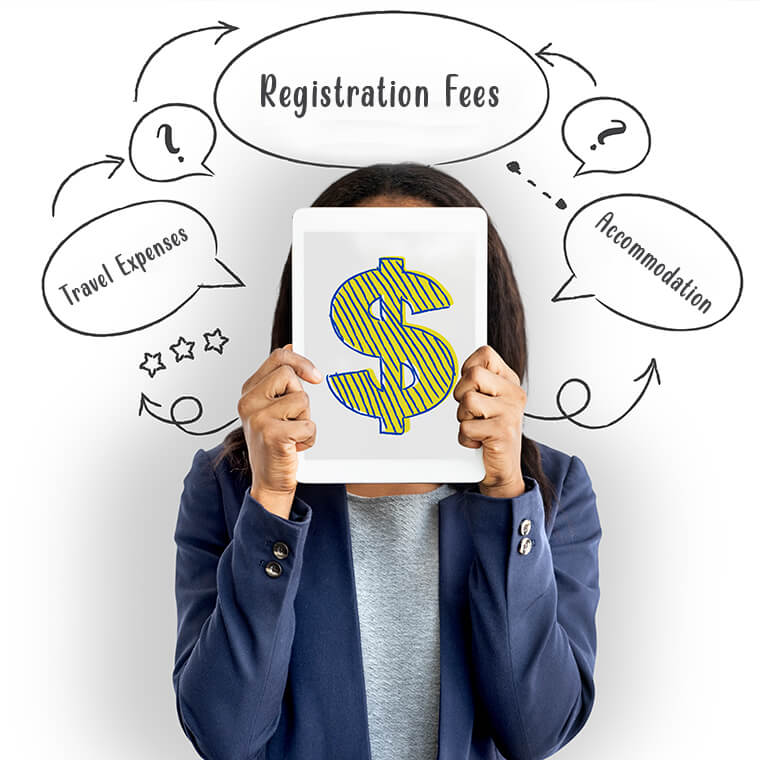
Attending a dental conference is a valuable investment in your professional growth and the advancement of your dental practice. However, it's essential to approach conference planning with financial prudence.
1. Evaluate Budget and Resource Constraints
Attending dental conferences offers immense benefits, but it's crucial to balance the potential gains with the practical considerations of your dental office's budget and available resources. Conferences involve various expenses, including registration fees, travel, accommodation, and the cost of time spent away from the practice. Therefore, evaluating your practice's financial constraints is an essential step in determining the scope of your conference attendance.
Some frequent costs that dental professionals pay when attending conferences include:
- Registration Fees: Start by assessing the cost of conference registration for each attendee. Many conferences offer early bird discounts or group rates, so take advantage of cost-saving opportunities where possible.
- Travel Expenses: Calculate the expenses related to travel, including airfare, ground transportation, and parking. If the conference is within driving distance, consider fuel costs and vehicle maintenance.
- Accommodation: Research hotel options near the conference venue and estimate the cost of lodging. Some conferences negotiate special rates with partner hotels, so be sure to explore these options for potential savings.
- Per Diem and Meals: Plan for daily allowances (per diem) for meals and incidentals, especially if your team will be traveling to a location where food expenses can vary widely.
- Time Away from Practice: Recognize that attending a conference means your team members will be away from the office for the duration of the event. Calculate the potential revenue loss during this period and explore ways to mitigate the impact.
- Other Expenses: Don't forget to account for miscellaneous expenses, such as transportation to and from the airport, conference materials, and any optional workshops or activities.
Once you have a clear understanding of the total expenses associated with conference attendance, consider the financial constraints and resources available to your dental practice. Assess how much your practice can comfortably allocate to conference participation without adversely affecting its financial stability or daily operations.
Below are some helpful budgeting strategies to keep your costs under control:
- Prioritize Attendees: If budget constraints limit the number of attendees, prioritize team members who can benefit the most from the conference based on their roles and responsibilities within the practice.
- Seek Sponsorship: Explore opportunities for sponsorship or financial support from dental manufacturers, suppliers, or local dental associations. Some organizations may offer grants or scholarships to help cover conference expenses.
- Set a Conference Budget: Establish a clear and realistic budget for conference-related expenses. This budget can serve as a guideline for decision-making and financial planning.
- Consider Virtual Conferences: In some cases, attending virtual conferences can significantly reduce expenses associated with travel and accommodation. Explore virtual options if they align with your objectives and budget constraints.
- Plan Well in Advance: Early planning allows for cost-effective bookings and better negotiation of rates, helping you optimize your budget.
Careful budget evaluation and management are essential to ensure that your dental practice can participate in conferences without compromising its financial health. By making informed decisions, you can strike a balance between the benefits of professional development and the fiscal responsibility of your practice.
2. Plan for Continuity
Attending a dental conference can provide invaluable insights and knowledge, but it's equally essential to plan for continuity within your dental office while attendees are away. Ensuring that patient care and daily operations continue seamlessly during the conference is vital to maintain the high standards of service your patients expect.
To achieve this, consider a well-thought-out continuity plan that may involve temporarily redistributing responsibilities or arranging for temporary staff support, if necessary.
Key Aspects of Planning for Continuity:
- Delegate Responsibilities: Identify which responsibilities will be temporarily transferred to other team members during the conference. Ensure that there is clarity on who will handle tasks such as appointment scheduling, patient check-ins, and clinical procedures.
- Patient Scheduling: Prioritize patient scheduling and communication to minimize the impact on appointments. Notify patients well in advance about any rescheduled appointments and provide alternative times or practitioners if needed.
- Emergency Protocols: Ensure that your team is well-versed in emergency protocols and has access to contact information for key personnel during the conference. This includes knowing how to handle patient emergencies and maintenance issues within the practice.
- Communication Plan: Establish clear lines of communication among team members and with patients. Provide a point of contact who can address any concerns or questions that may arise during the conference.
- Patient Records and Documentation: Ensure that patient records and documentation are up-to-date and easily accessible to the team. Digital practice management software like Adit can facilitate access to patient information when needed.
- Training and Guidelines: Develop written guidelines and procedures for handling various tasks and scenarios in the absence of key team members. This ensures that everyone knows their roles and responsibilities.
By proactively planning for continuity, you can mitigate potential disruptions to your dental office's operations and maintain the quality of patient care. Effective preparation not only benefits your patients but also allows your team members attending the conference to focus on their professional development with peace of mind, knowing that the practice is in capable hands.
3. Validate Conference Relevance with Professional Associations

Before finalizing your decision to attend a dental conference, it's a wise practice to thoroughly assess the conference's worthiness and alignment with your professional objectives. One valuable resource for this evaluation is your affiliation with professional dental associations. These organizations often play a pivotal role in the dental community by offering guidance, recommendations, and insights into various conferences, speakers, and topical themes.
Why Consult Professional Associations
- Credibility and Expertise: Professional dental associations are renowned for their expertise in the field. They continuously assess the quality and relevance of conferences, ensuring that they meet high standards of educational content and professional value.
- Tailored Recommendations: These associations understand the diverse needs and interests of dental professionals. They can provide tailored recommendations based on your specific practice area, whether it's general dentistry, orthodontics, periodontics, or any other specialization.
- Current Insights: Dental associations stay abreast of the latest trends, emerging technologies, and regulatory changes within the dental industry. They can guide you toward conferences that offer the most up-to-date information and resources.
- Networking Opportunities: Associations often have extensive networks and connections within the dental community. They can help you identify conferences where you're likely to make meaningful professional connections and collaborations.
- Continuing Education Requirements: For those professionals with continuing education requirements, consulting with your dental association can ensure that the conferences you attend fulfill these requirements, allowing you to maintain your licensure or certification.
Relying on the guidance of professional dental associations can be an invaluable step in ensuring that the conference you choose not only meets your educational and networking needs but also aligns with the highest standards of quality and relevance in the field.
Your Dental Conference Checklist
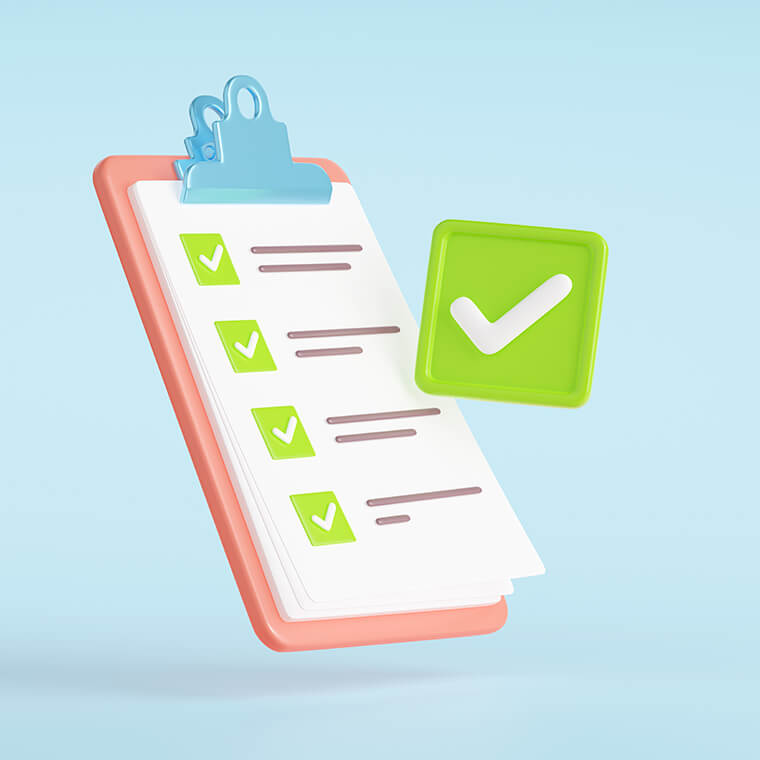
Dental conferences are a crucial part of staying up-to-date with the latest trends, technologies, and best practices in the field. Whether you're a seasoned dentist or a dental student, attending these conferences can be a game-changer for your career. However, to make the most out of your experience, you need to be well-prepared. That's where our comprehensive dental conference checklist comes into play.
Before the Conference
Register Early
The first step to attending any dental conference is to register early. Many conferences offer early bird discounts, and some have limited seating. By registering well in advance, you can save money and secure your spot.
Review the Conference Agenda
Once you've registered, take some time to review the conference agenda. Identify the sessions, workshops, and speakers that interest you the most. Planning your schedule in advance will help you make the most of your time at the conference.
Book Accommodations
If the conference is out of town, make sure to book your accommodations early. Hotels near the conference venue tend to fill up quickly, so it's best to secure your lodging as soon as possible. If it's a virtual affair, consider dedicating the use of a conference room that day to provide a quiet space with no distraction.
Travel Arrangements
If you're traveling from another city or country, arrange your transportation in advance. This includes booking flights, trains, or other forms of transportation. Don't forget to factor in travel time to ensure you arrive on time for the conference.
Pack Essentials
Make a list of essential items to pack, including your conference registration confirmation, identification, comfortable clothing and shoes, chargers, notepads, and pens. Also, don't forget your business cards (paper and digital) for networking opportunities.
During the Conference
Dress Appropriately
Dress professionally and comfortably. You'll be on your feet a lot, so wear comfortable shoes. Also, consider bringing a light sweater or jacket, as conference venues can sometimes be chilly.
Stay Hydrated and Energized
Conferences can be long and tiring, so stay hydrated and energized. Carry a refillable water bottle and some healthy snacks to keep you going throughout the day.
Engage in Networking
One of the most valuable aspects of dental conferences is the opportunity to network with peers, mentors, and industry professionals. Don't be shy—introduce yourself, exchange contact information, and participate in networking events.
Take Notes
Bring a notebook or use a note-taking app to jot down key takeaways from the sessions you attend. These notes will be invaluable when you return to your practice or educational institution.
Visit the Exhibit Hall
Most dental conferences have an exhibit hall where dental companies showcase their latest products and technologies. Take some time to explore this area and stay updated on the newest developments in the field.
After the Conference
Review Your Notes
Once the conference is over, take some time to review your notes and reflect on what you've learned. Identify action items that you can implement in your practice or studies.
Follow Up
Don't let the connections you've made at the conference go to waste. Send follow-up emails to the people you met, thanking them for their time and expressing your interest in staying in touch.
Share Insights
Share your conference insights and takeaways with your colleagues, peers, and social media networks. Sharing knowledge not only reinforces your learning but also establishes you as a thought leader in your field.
Plan for the Next Conference
Consider attending future dental conferences. It's a great way to continue your professional development and stay at the forefront of the industry.
Enhance Your Conference Journey with Adit's Practice Management Software
Attending dental conferences undoubtedly presents fantastic opportunities for professional growth, networking, and staying updated on industry trends. However, preparing your dental office for your absence during the conference can be a daunting task. This is where Adit's practice management software comes into play, offering a seamless solution to streamline your dental practice and free up precious time and resources for you to pursue your conference goals effectively.
-
Efficient Appointment Scheduling Adit's practice management software makes appointment scheduling effortlessly. Empower your clients to efficiently manage their appointments online. Whether a reschedule is needed or your front desk wants to avoid overbooking or gaps in your schedule, online scheduling ensures that your practice runs smoothly even when you're away at a conference.
-
Patient Communication and Engagement Maintaining patient relationships is essential for a thriving dental practice. Modern PMS platforms offer smart communication tools such as automated appointment reminders, follow-up messages, and marketing campaigns. This keeps your patients engaged and informed, reducing no-shows and ensuring continuity of care during your absence.
-
Streamlined Administrative Tasks Administrative tasks can often consume a significant portion of your time. Adit's software simplifies administrative processes, from billing and insurance claims to patient record management. Automation reduces the administrative burden, allowing you to focus on conference preparation and post-conference implementation of new strategies.
-
Team Collaboration and Communication Effective teamwork is crucial to running a successful dental office. Your management system should facilitate seamless team collaboration and communication. Share important updates, delegate responsibilities, and maintain clear lines of communication with your staff, even while you're away.
-
Financial Management and Reporting Keeping a close eye on your practice's financial health is essential. Financial management tools that allow you to monitor revenue, expenses, and profitability in real-time. Access comprehensive financial reports and insights remotely, ensuring your practice remains financially stable during your conference attendance.
-
Remote Access and MobilityPractice management software solutions should keep you connected no matter where you are. Suites like Adit's practice management software is designed for mobility with inutitive mobile apps. You can access critical practice data, patient information, and appointment schedules from anywhere with an internet connection. This remote accessibility ensures that you can oversee your practice even when you're attending a conference in a different location.
Adit's practice management software is a valuable asset for dental professionals seeking to maximize the benefits of attending conferences. It's the perfect complement to your dental conference checklist, empowering you to pursue your professional development with confidence and peace of mind.
Schedule your free demo today to learn more!
more about Adit?
Say goodbye to the hassle of using multiple tools. Adit centralizes your calls, texts, payments, reviews, and scheduling into one powerful dashboard. Simplify your operations and boost patient satisfaction today.
Schedule a DemoAngela is a former English teacher turned marketing content specialist. Over the past 10 years, she’s developed marketing strategies to forge enduring bonds between B2B, B2C and SaaS companies and their clients through holistic education, effective communication, and captivating storytelling that moves audiences to act.
Get a $25 Gift Card when you take a demo
Schedule a DemoGet a $50 Gift Card
when you take a demo
Looks like you're out of bounds!
Hey there! Your current location falls outside Adit's area of operation. If this is unexpected, try disabling your VPN and refresh your page. For further assistance or to book a live demo, connect with us at 832-225-8865.
March 2 Amazon Demo Promo
Terms and Conditions
Last Updated: March 2, 2026Offer ends March 5, 2026, and is limited to prospective customers who sign an annual agreement before March 31, 2026. Gift card will be emailed to the company owner or established representative within 4 weeks of signing the annual agreement. Offer may not be combined with any other offers and is limited to one (1) gift card per office. Offer is not available to current customers or to prospective customers or individuals that have participated in a Adit demo during the prior six (6) months. Recipient is responsible for all taxes and fees associated with receipt and/or use of the gift card as well as reporting the receipt of the gift card as required under applicable federal and state laws. Adit is not responsible for and will not replace the gift card if it is lost or damaged, is not used within any applicable timeframe, or is misused by the recipient. Adit is not responsible for any injury or damage to persons or property which may be caused, directly or indirectly, in whole or in part, from the recipient’s participation in the promotion or receipt or use of the gift card. Recipient agrees to indemnify, defend and hold harmless Adit from and against any and all claims, expenses, and liabilities (including reasonable attorney’s fees) arising out of or relating to a recipient’s participation in the promotion and/or recipient’s acceptance, use or misuse of the gift card. This offer is sponsored by Adit Communications, Inc. and is in no way sponsored, endorsed or administered by, or associated with Amazon.
Thank You!
We appreciate your interest! Adit AI will be calling you in the next few minutes!
Why Adit?
Cut your software bill by up to 60% when you merge everything your dental office needs to run under one roof.
Centralize Communications
- Phones & TeleMed
- Emails & eFax
- Texting & Reminders
- Call Tracking and more!
Streamline Operations
- Patient Forms
- Online Scheduling
- Payments
- Reviews and more!
Boost Production
- Performance Dashboards
- Morning Huddle
- Claims & Collections
- Patient Profiles
- Follow Up Lists
- Year Over Year Metrics
Acquire More Patients
- Digital Marketing
- Website Design
- SEO
- Google Ads
- Facebook Ads
when you sign up with Adit!
Sign up by filling out the form



